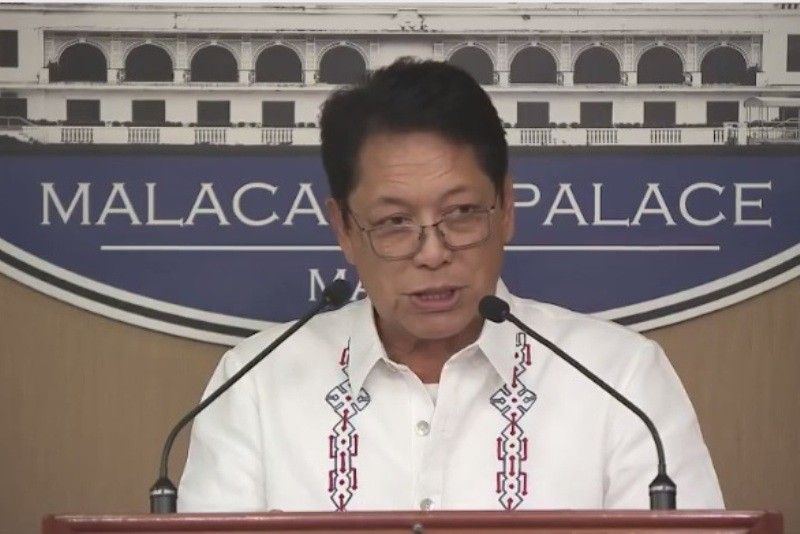Bello: 'Localized' peace talks to push through in 2019

MANILA, Philippines — Labor Secretary Silvestre Bello III, who is also the government’s chief peace panel negotiator, said the panel will take a back seat next year as the government will push through with "localized" peace talks in 2019.
“Lately, the president decided to take another path, localized peace talks,” Bello said in a Malacañang press conference on Thursday afternoon.
Bello was referring to Executive Order No. 70 signed by President Rodrigo Duterte on December 4.
The EO calls for a “whole of nation” approach in its strategy in ending the community insurgency in the country. It also called for talks to be localized.
READ: Duterte signs 'whole-of-nation' EO vs insurgency
“There is a need to create a national task force that will provide an efficient mechanism and structure for the implementation of the whole-of-nation approach to aid in the realization of the collective aspiration of the Filipino people to attain inclusive and sustainable peace,” the order dated December 4 read.
The government peace panel — which had been negotiating with a panel from the National Democratic Front of the Philippines since talks resumed in 2016 — would take a back seat once the localized peace talks take off, Bello told reporters.
The Communist Party of the Philippines has rejected the idea of "localized" talks, saying the root causes of the decades-long insurgency need to be addressed through socio-economic reforms on a national level.
'Localized' talks
The talks will negotiate with armed fronts on the local level instead of focusing its peace negotiations through the NDFP.
Jesus Dureza, who resigned as presidential peace adviser in November, said that same month that the "localized" peace talks are meant to help "those who want to leave and want to have a peaceful life."
He said that the government has the Enhanced Comprehensive Local Integration Program, which includes housing programs and cash incentives for former rebels to turn in their weapons.
He said although the program has existed in previous administrations, "there is more extensive work in that direction."
“In the meantime we're reviewing agreements entered into in case there will be a resumption (of peace talks),” Bello saidThursday.
RELATED: CPP rejects government's proposed 'localized peace talks'
A year after ending negotiations with the Communist Party of the Philippines, New People's Army and National Democratic Front, Duterte ordered the military to crush the communist rebels.
“[The communists] will kill this republic and I will not allow it. One day I will get all of you. And if I have the identity and I can validate it with the police and the military, they will all be dead in two or three days. We will be floating in blood,” Duterte said last week.
Bello defended the president’s comments during the press conference.
“Well, the reality is we are in a state of armed conflict. There is no peace, so there will be fighting,” Bello said.
“And if I were the president I would do everything to crush the rebellion. So that’s normal,” he said in Filipino. “And until there is no peace agreements, peace settlement, then we continue to fight the rebels, at the very least, if not crush totally, at least they’d be decimated.”
Bello had also served as chairman of the Government Negotiating Panel for President Gloria Macapagal-Arroyo from 2001 to 2004.
His comments come a day after the CPP celebrated its 50th anniversary.
On the anniversary of the founding of the communist movement in the Philippines, Malacañang called the rebellion “a failure” and said it would be “buried in the dustbin of history.”
Presidential Spokesperson Salvador Panelo said the rebellion only resulted in the loss of lives and destruction to property.
“The 50 years of Joma Sison’s rebellion speaks for itself. It’s a failed rebellion. It only resulted in loss of lives of Filipinos, especially the numerous young students who were killed in battles, skirmishes and in sickness in the hills, who could have served their country well in pacific and productive means, as well as destruction of properties,” Panelo said.
Bello, however, is a little more hopeful than other Cabinet members, saying that the panel was about to finalize socioeconomic agreements prior to the signing of EO 70.
“We were about to finalize agreements on socio-economic reforms, which is the soul of the peace negotiations, Bello said. “If we can agree with CPP-NPA on that, to me, that's the end game.”
RELATED: CPP pushes for socio-economic reforms, release of political prisoners
- Latest
- Trending
























